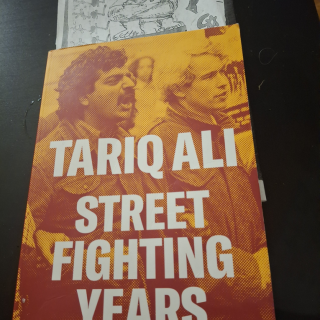Advertisement
A 1963 landmark meeting that helped change the course of civil rights in America provides the centerpiece in the world premiere of “When Your Soul Cries,” a two- act drama by Columbus playwright Rich Bloom.
Bloom said the play is being produced by Stage Right Theatrics Aug. 13-15 at the Abbey Theater in Dublin.
“This is the very first play I’ve written, and I am humbled that Stage Right would deem it worthy to premiere this summer,” Bloom said. “Naturally I am excited and apprehensive, but I believe the play’s message resonates loudly given the racial divide that still exists in this country. On that one day in May,” he said, “black lives not only mattered, they made a difference.”
The four-hour gathering, Bloom said, took place on May 24, 1963 between Attorney General Robert F. Kennedy and a passionate group of black activists. Both sides had agreed to keep the meeting “a secret,” but anger, frustration and disillusionment undermined that agreement.
Writers James Baldwin and Lorraine Hansberry, along with entertainers Lena Horne and Harry Belafonte and others, immediately took the attorney general to task for the Kennedy administration’s lack of a moral commitment to civil rights.
“The passions, emotions and convictions so prevalent at that meeting caught Bobby Kennedy off guard,” Bloom said. “He was expecting a rational discussion on how to deal with mounting racial tension. Instead, he was confronted with more emotion than reason. When he left he was angry, disillusioned and emotionally bloodied.”
But, said Bloom, within two weeks he admitted to his brother, President John F. Kennedy, the administration had not done enough to advance civil rights. He urged his brother to take a moral stand in favor of justice for all in his upcoming nationally televised address, knowing full well such a pronouncement could cost the Kennedys the White House in 1964.
“That was a radical departure for the Kennedys,” Bloom said. “They were all about politics, not morality, in the spring of 1963. But both John and Bobby were willing to give that up in favor of a principle.”
Bloom is a retired journalist and historian living in Columbus, Ohio. He says he happened on the little-known meeting while doing some summer reading.
“I was at the pool one day and reading We Are Not Afraid, a book about the three civil rights workers murdered in Mississippi in 1964,” Bloom said. “A page or two was devoted to this meeting, which I sensed was a very emotional encounter at the time. I turned to my girlfriend and said, ‘Wouldn’t this make a good play?” She agreed and I was off and running.”
Bloom said what is important about the play is the meeting’s impact on the civil rights movement. One newspaper columnist, he said, has called it a “watershed moment for the advancement of civil rights in America,” but a moment virtually overlooked and neglected by most Black Heritage advocates today.
“There was a young civil rights, front line activist named Jerome Smith at the meeting,” Bloom said. “And he did not stand on ceremony in speaking to Bobby. In fact, he even told him being in the same room with him made him want to throw up.”
The statement infuriated Bobby, but he continued to listen, Bloom said. Kennedy left four hours later, exhausted and angry. The crusaders left thinking their passion had fallen on deaf ears.
“That wasn’t the case at all,” Bloom said. “That meeting changed Bobby Kennedy and changed America.
“I am so glad I have had the opportunity to re-create that moment,” Bloom said. “It should serve to remind folks that the commitment underlying the group’s passion and conviction did make a difference. A difference for all of us.”
Friday ‘s and Saturday’s shows begin at 7:30 pm and Sunday’s matinee at 1:30 pm at the theater, 5600 Post Rd. Dublin, Ohio. Tickets are $12 for both in-person and virtual attendance and can be purchased at stagerighttheatrics.ticketspice.com/when-your-soul-cries.
For more information, contact Rich Bloom at rico0619@hotmail.comor at 614-949-5641.



